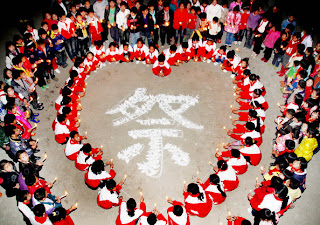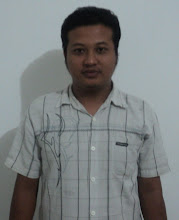The Qingming Festival is a traditional Chinese fest on the 104th day after the winter solstice (or the 15th day from the Spring Equinox), usually occurring around April 5th of the Gregorian calendar. Astronomically, it is also a solar term. The Qingming festival falls on the first day of the fifth solar term, named Qingming. Its name denotes a time for people to go outside and enjoy the greenery of springtime (Taqing, "treading on the greenery") and tend to the graves of departed loved ones.
Qingming has been regularly observed as a statutory public holiday in Taiwan and in the Chinese jurisdictions of Hong Kong and Macau. Its observance was reinstated as a public holiday in mainland China in 2008, after having been previous suppressed by the ruling Communist Party in 1949.
The holiday is known by a number of names in the English language:
- All Souls Day (not to be confused with the Roman Catholic holiday, All Souls, Day, of the same name)
- Clear Bright Festival
- Ancestors Day
- Festival for Tending Graves
- Grave Sweeping Day
- Chinese Memorial Day
- Tomb Sweeping Day
- Spring Remembrance
Tomb Sweeping Day and Clear Bright Festival are the most common English translations of the Qingming Festival. Tomb Sweeping Day is used in several English language newspapers published in Taiwan.
Origin Qingming Festival is when Chinese people visit the graves or burial grounds of their ancestors. Traditionally, people brought a whole rooster with them to the graves visited, but the occasion hs become less formal over time. The festival originated from
Hanshi Day, (literally, a day with cold food only), a memorial day for
Jie Zitui or Jie Zhitui. Jie Zitui died in 636 B.C., in the Spring and Atumn Period. He was one of the many followers of
Duke Wen of Jin before he became a duke. Once, during Wen's nineteen years of exile, they had no food and Jie prepared some meat soup for Wen. Wen enjoyed it a lot and wondered where Jie had obtained the soup. It turned out Jie had cut a piece of meat from his own thigh to make the soup. Wen was so moved he promised to reward him one day. However, Jie was no the type of person who sought rewards. Instead, he just wanted to help Wen to return to Jin to become kind. Once Wen became duke, Jie resigned and stayed away from him. Duke Wen rewarded the people who helped him in the decade, but for some reason he forgot to reward Jie, who by then had moved into the forest with his mother. Duke Wen went to the forest, but could not find Jie. Heeding suggestions form his officials, Duke Wen ordered men to set the forest on fire to force out Jie. However, Jie died in the fire. Feeling remorseful, Duke Wen ordered three days without fire to honor Jie's memory. The county where Jie died is still called
Jiexiu ("the place Jie rests forever").
Qingming has a tradition stretching back more than 2,500 years. Its origin is credited to the
Tang Emperor Xuanzong in 732. Wealthy citizen in China were reportedly holding too many extravagant and ostentatiously expensive ceremonies in honor of their ancestors. Emperor Xuanzong, seeking to curb this practice, declared that respects could be formally paid at ancestors' graves only on Qingming. The observance of Qingming found a firm place in Chinese culture and continued uninterrupted for over two millennia. In 1949 the Communist Party of China repealed the holiday, Observance of Qingming remained suppressed until 2008, when the Party reinstated the holiday, in Hong Kong and Macau this practice has been uninterrupted for two millenia.
Celebrating Qingming The Qingming Festival is an opportunity for celebrants to remember and honor their ancestors at grave sites. Young and old pray before the ancestors, sweep the tombs and offer food, tea, wine, chopsticks, joss paper accessories, and /or libations to the ancestors. The rites have a long tradition in Asia, especially among farmers. Some people carry willow branches with them on Qingming, or put willow branches on their gates and /or front doors. They believe that willow branches help ward off the evil spirit wanders on Qingming.
On Qingming people go on family outings, start the spring plowing, sing, dance. Qingming is also the time when young couples start courting. Another popular thing to do is to fly kites in the shapes of animals or characters from Chinese operas. Another common practice is to carry flowers instead of burning paper, incense or firecrackers.
The holiday is often marked by people paying respects to those who died in events considered sensitive in China.
The April Fifth Movement and the
Tiananmen Incident were major events on Qingming that took place in the history of the People's Republic of China. When
Premier Zhou Enlai died in 1976, thousands visited him during the festival to pay their respects. Many also pay respects to victims of the Tiananmen Square protests in 1989 and the graves of
Zhao Ziyang and
Yang Jia in areas where the right of free expression is generally recognized, as in Hong Kong. In most areas of China such observances are suppressed and all public mention of such subjects is taboo. In Taiwan, this nations holiday is observed on April 5th, because the ruling
Kuomintang moved it to that date in commemoration of the death of
Chiang Kai-shek on April 5th. The holiday is nevertheless observed in the traditional manner with families gathering to honor their own ancestors, visit and maintain their family shrines, and share traditional meals.
Despite having no holiday status, the overseas Chinese communities in Southeast Asian nations, such as those in Singapore and Malaysia, take this festival seriously and observe its traditions faithfully. Some Qingming rituals and ancestral veneration decorum observed by the oversea Chinese in Malaysia and Singapore can be dated back to
Ming and
Qing dynasties, the oversea communities were not affected by the Cultural Revolution in Mainland China. Qingming in Malaysia is an elaborate family function or a
clan feast (usually organized by the respective clan associaiton) to commemorate and honor recently deceased relatives at their grave sites and distant ancestor from China at home altars, clan temples or makeshift altars in Buddhist or Taoist temples. For the oversea Chinese community, the Qingming festival is very much a family celebration and at the same time, a family obligation. They see this festival as a time of reflection and to honor and give thanks to their forefathers. Overseas Chines normally visit the graves of their recently deceased relatives on the nearest weekend to the actual date. According to the ancient custom, grave site veneration is only feasible ten days before and after the Qinming Festival. If the visit is not on the actual date, normally veneration before Qingming is encouraged. The Qingming Festival in Malaysia and Singapore normally starts early in the morning by paying respect to distant ancestors from China at home altars. This is followed by visiting the graves of close relatives in the country. Some follow the concept of filial piety to the extent of visiting the graves of their ancestors in mainland China. Traditionally, the family will burn spirit money and paper replicas of material goods such as cars, homes and phones and paper servants. In Chinese culture, it is believed that people still need all of those things in the afterlife. Then family members start to take turns to kowtow three to nine times (depending on the family adherence to traditional values) before the tomb of the ancestors. The
Kowtowing ritual in front of the grave is performed in the order of patriarchal seniority with the family. After the ancestor worship at the grave site, the whole family or the whole clan feast on the food and drink they brought for the worship either at the site or in nearby gardens in the memorial park, signifying family reunion with the ancestors.












No comments:
Post a Comment